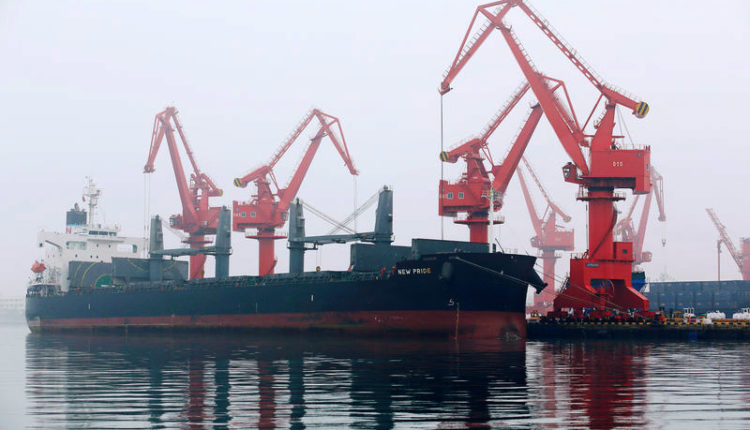Oil prices slip, but supported by hopes trade tensions could ease
By Jessica Jaganathan
SINGAPORE (Reuters) – Crude oil prices slipped on Tuesday, but losses were limited as equity markets rallied and as traders hoped Sino-U.S. trade tensions would ease.
The United States said it would extend a reprieve that permits China’s Huawei Technologies to buy components from U.S. companies, in a sign of a slight softening of the trade war between both countries.
Brent crude (LCOc1) had slipped 3 cents, or 0.05%, to $59.71 a barrel by 0147 GMT, after rising 1.88% on Monday.
U.S. crude (CLc1) was down 15 cents, or 0.3%, at $56.06 a barrel, after gaining 2.44% in the previous session.
The extension sets a very “comforting tone” ahead of next month’s U.S.-China trade talks, Stephen Innes, managing partner, VM Markets, said in a note.
“The U.S.-China trade spat has been at the center of the oil market demise, which has sent the global economy to the brink of recession and negatively impacted oil demand forecasts,” he said.
A rally in equity markets around the world from growing expectations that global economies would take action to counteract slowing growth also supported oil prices, which often follow stocks.
China’s central bank unveiled interest rate reforms which are expected to lower corporate borrowing costs, while Germany’s right-left coalition government said it would be prepared to ditch its balanced budget rule and take on new debt to counter a possible recession.
Meanwhile, a Reuters poll of seven analysts showed that crude oil inventories in the United States fell by 1.9 million barrels in the week to Aug. 16.
The poll was conducted ahead of reports from the American Petroleum Institute (API), an industry group, and the Energy Information Administration (EIA), an agency of the U.S. Department of Energy.
The API is scheduled to release its data on Tuesday.
Still, prices were weighed down by a report from the Organization of the Petroleum Exporting Countries (OPEC) that stoked concerns about growth in oil demand.
OPEC cut its forecast for global oil demand growth in 2019 by 40,000 barrels per day (bpd) to 1.10 million bpd and indicated the market would be in slight surplus in 2020.
Traders were also watching for signs of tension in the Middle East after the U.S. called the release of an Iranian tanker at the center of an angry confrontation between Iran and Washington unfortunate and warned Greece and Mediterranean ports against helping the vessel.

